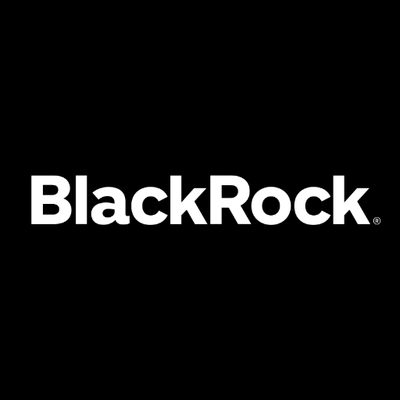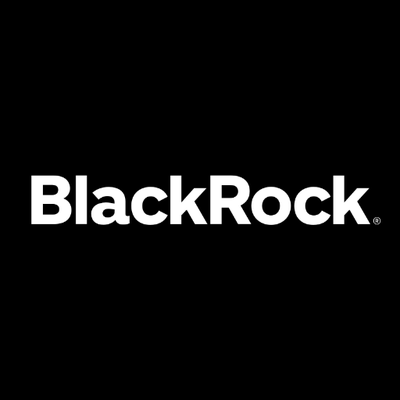BlackRock Frontiers Investment Trust plc (LON:BRFI) has provided its latest portfolio update.
All information is at 28 February 2022 and unaudited.
You can discover more about the BlackRock Frontiers Investment Trust at blackrock.com/uk/brfi
Performance at month end with net income reinvested.
| One month % | Three months % | One year % | Three years % | Five years % | Since Launch* % | |
| Sterling: | ||||||
| Share price | 0.4 | 0.5 | 13.2 | 6.3 | 8.3 | 92.0 |
| Net asset value | -3.7 | -1.3 | 16.4 | 15.9 | 19.7 | 107.5 |
| Benchmark (NR)** | 1.9 | 6.9 | 20.8 | 9.5 | 27.8 | 79.6 |
| MSCI Frontiers Index (NR) | -4.4 | -7.7 | 14.5 | 24.1 | 27.1 | 79.9 |
| MSCI Emerging Markets Index (NR) | -3.0 | -4.4 | -6.9 | 18.2 | 30.0 | 59.5 |
| US Dollars: | ||||||
| Share price | 0.4 | 1.9 | 8.6 | 7.2 | 16.8 | 65.9 |
| Net asset value | -3.7 | 0.1 | 11.7 | 16.9 | 29.2 | 79.1 |
| Benchmark (NR)** | 2.0 | 8.5 | 15.9 | 10.5 | 37.8 | 55.8 |
| MSCI Frontiers Index (NR) | -4.4 | -6.4 | 9.9 | 25.2 | 37.1 | 54.8 |
| MSCI Emerging Markets Index (NR) | -3.0 | -3.0 | -10.7 | 19.2 | 40.2 | 37.3 |
Sources: BlackRock and Standard & Poor’s Micropal
* 17 December 2010.
** The Company’s benchmark changed from MSCI Frontier Markets Index to MSCI Emerging ex Selected Countries + Frontier Markets + Saudi Arabia Index (net total return, USD) effective 1/4/2018.
| At month end | |
| US Dollar | |
| Net asset value – capital only: | 181.00c |
| Net asset value – cum income: | 181.89c |
| Sterling: | |
| Net asset value – capital only: | 134.90p |
| Net asset value – cum income: | 135.56p |
| Share price: | 127.50p |
| Total assets (including income): | £256.7m |
| Discount to cum-income NAV: | 5.9% |
| Gearing: | nil |
| Gearing range (as a % of gross assets): | 0-20% |
| Net yield*: | 3.3% |
| Ordinary shares in issue**: | 189,325,748 |
| Ongoing charges***: | 1.4% |
| Ongoing charges plus taxation and performance fee: | 2.4% |
*The Company’s yield based on dividends announced in the last 12 months as at the date of the release of this announcement is 3.3% and includes the 2021 interim dividend of 2.75 cents per share, announced on 01 June 2021 and paid to shareholders on 25 June 2021. Also included is the 2021 final dividend of 4.25 cents per share, declared on 1 December 2021, with pay date 11 February 2022.
** Excluding 52,497,053 ordinary shares held in treasury.
***Calculated as a percentage of average net assets and using expenses, excluding Performance fees and interest costs for the year ended 30 September 2021.
| Sector Analysis | Gross market value as a % of net assets | Country Analysis | Gross market value as a % of net assets | ||
| Financials | 38.5 | Saudi Arabia | 18.8 | ||
| Consumer Discretionary | 18.4 | Indonesia | 13.2 | ||
| Industrials | 16.6 | Vietnam | 8.9 | ||
| Materials | 9.7 | Thailand | 8.1 | ||
| Consumer Staples | 6.8 | United Arab Emirates | 7.9 | ||
| Real Estate | 5.1 | Greece | 6.8 | ||
| Energy | 5.0 | Malaysia | 5.6 | ||
| Health Care | 4.4 | Philippines | 5.6 | ||
| Information Technology | 3.2 | Egypt | 5.6 | ||
| Communication Services | 1.5 | Chile | 4.8 | ||
| Utilities | 1.5 | Qatar | 4.7 | ||
| —– | Kazakhstan | 4.3 | |||
| 110.7 | Poland | 3.2 | |||
| —– | Romania | 2.9 | |||
| Short positions | -3.3 | Kenya | 2.0 | ||
| ===== | Hungary | 1.7 | |||
| Panama | 1.5 | ||||
| Pakistan | 1.5 | ||||
| Peru | 1.5 | ||||
| Ukraine | 1.3 | ||||
| Austria | 0.4 | ||||
| Nigeria | 0.4 | ||||
| —– | |||||
| Total | 110.7 | ||||
| —– | |||||
| Short positions | -3.3 | ||||
| ===== |
*reflects gross market exposure from contracts for difference (CFDs).
Market Exposure
| 31.03 2021 % | 30.04 2021 % | 31.05 2021 % | 30.06 2021 % | 31.07 2021 % | 31.08 2021 % | 30.09 2021 % | 31.10 2021 % | 30.11 2021 % | 31.12 2021 % | 31.01 2022 % | 28.02 2022 % | |
| Long | 105.7 | 108.5 | 105.3 | 106.8 | 107.1 | 104.2 | 108.1 | 110.6 | 106.3 | 104.3 | 108.4 | 110.7 |
| Short | 3.4 | 2.5 | 2.3 | 4.6 | 2.3 | 0.6 | 0.4 | 0.4 | 0.4 | 1.0 | 1.9 | 3.3 |
| Gross | 109.1 | 111.0 | 107.6 | 111.4 | 109.4 | 104.8 | 108.5 | 111.0 | 106.7 | 105.3 | 110.3 | 114.0 |
| Net | 102.3 | 106.0 | 103.0 | 102.2 | 104.8 | 103.6 | 107.7 | 110.2 | 105.9 | 103.3 | 106.5 | 107.4 |
Ten Largest Investments
| Company | Country of Risk | Gross market value as a % of net assets |
| Saudi National Bank | Saudi Arabia | 4.5 |
| Emaar Properties | United Arab Emirates | 4.0 |
| Bank Rakyat | Indonesia | 4.0 |
| Saudi British Bank | Saudi Arabia | 3.4 |
| FPT | Vietnam | 3.2 |
| United International Transport | Saudi Arabia | 3.2 |
| Leejam Sports | Saudi Arabia | 3.1 |
| CP All | Thailand | 3.1 |
| Mobile World | Vietnam | 3.1 |
| Indocement Tunggal Prakarsa | Indonesia | 2.8 |
Commenting on the markets, Sam Vecht and Emily Fletcher, representing the Investment Manager noted:
The Company’s NAV returned -3.7% versus its benchmark the MSCI Emerging ex Selected Countries + Frontier Markets + Saudi Arabia Index (“Benchmark Index”), which returned 2.0% in February. For reference, the MSCI Emerging Markets Index ended the month down 3.0% and the MSCI Frontier Markets Index returned -4.4% over the same period (all performance figures are on a US Dollar basis with net income reinvested).
As global markets reacted to an unprecedented escalation in Russia and Ukraine tensions and a subsequent invasion, the Benchmark Index held up quite strongly due to the performance of ASEAN and Middle East, led by UAE (+7%), Malaysia (+5%), and Thailand (+5%). We were hurt by our overweight exposure in Eastern Europe and underweight exposure in the Middle East. From a sector lens, our Financials positions gave back gains from the previous month.
Performance in February is largely explained by the common theme of geopolitical turmoil. The biggest detractor was our allocation to Poland, particularly clothing retailer LPP (-47%). LPP will close the majority of its stores across Russia and Ukraine, which together accounted for around 30% of sales. While Poland faces no immediate threat of a Russian military advance, tensions will remain high given its proximity to Ukraine, energy links, and the anticipated influx of refugees. Our financials positioning across eastern Europe came under pressure as the prospects of economic acceleration and subsequent loan growth dimmed, including Austrian banking group Raiffeisen (-47%) which has around 18% of its assets and 30% of its profits from Russia and Hungarian bank OTP (-33%). Kazakh e-commerce and payments super app, Kaspi (-30%), came under pressure from Russia contagion and sentiment too, despite no ostensible direct links and no disruptions to trading relationships.
On the other side, Egyptian investment bank EFG (+18%) helped performance following news of a takeover bid from UAE’s First Abu Dhabi Bank. UAE-based Airline, Air Arabia (+13%) also performed well as tourism in the region continues to recover. Kasikorn Bank (+11%) in Thailand also helped performance. Early in February, Thailand has significantly relaxed its entry requirements for tourists, expected to give a boost to economic growth.
While the Company does not have direct exposure to Russia, it has not been immune from the devastating turn of events. The extent to which these events will have far-reaching implications for the global economy will depend on how events play out from here. The coordinated sanctions effort from the West, particularly the freezing of Russian central bank assets, has resulted in significant disruptions to Russian exports, causing price spikes across the commodity complex. The pricing pressure goes beyond energy, for example Russia and Ukraine make up around 30% of global wheat exports, and Russia is a significant player in global potash.
We would expect at least some of these price moves to prove temporary, once trade routes shift, as global aggregate demand hasn’t grown, and has more likely shrunk somewhat. However, if current high prices do have longevity, and Central Banks are forced to raise rates to combat inflation which is already at multi-year highs, then this will have obvious consequences for economic growth.
We made a few changes to the portfolio in February. We trimmed positions across a number of financials to take profits: National Bank of Greece, Kasikorn Bank, OTP and Credicorp. We initiated a position in Yanbu Petrochemicals in Saudi Arabia, which we believe should benefit from the disruptions we are seeing in the oil and chemicals markets. We added to Kaspi, as we like the fundamentals and believe they can continue to deliver.
Overall, the scenarios discussed above depend hugely on the length of the conflict and whether a resolution can be achieved. This is a fast-moving situation, and we are adapting our portfolio to take advantage of market dislocations recognizing that market volatility creates alpha opportunities. We believe our opportunity set is a compelling universe to generate alpha.
Sources:
1BlackRock as at 28 February 2022
2MSCI as at 28 February 2022
16 March 2022
You can discover more about the BlackRock Frontiers Investment Trust at blackrock.com/uk/brfi





































